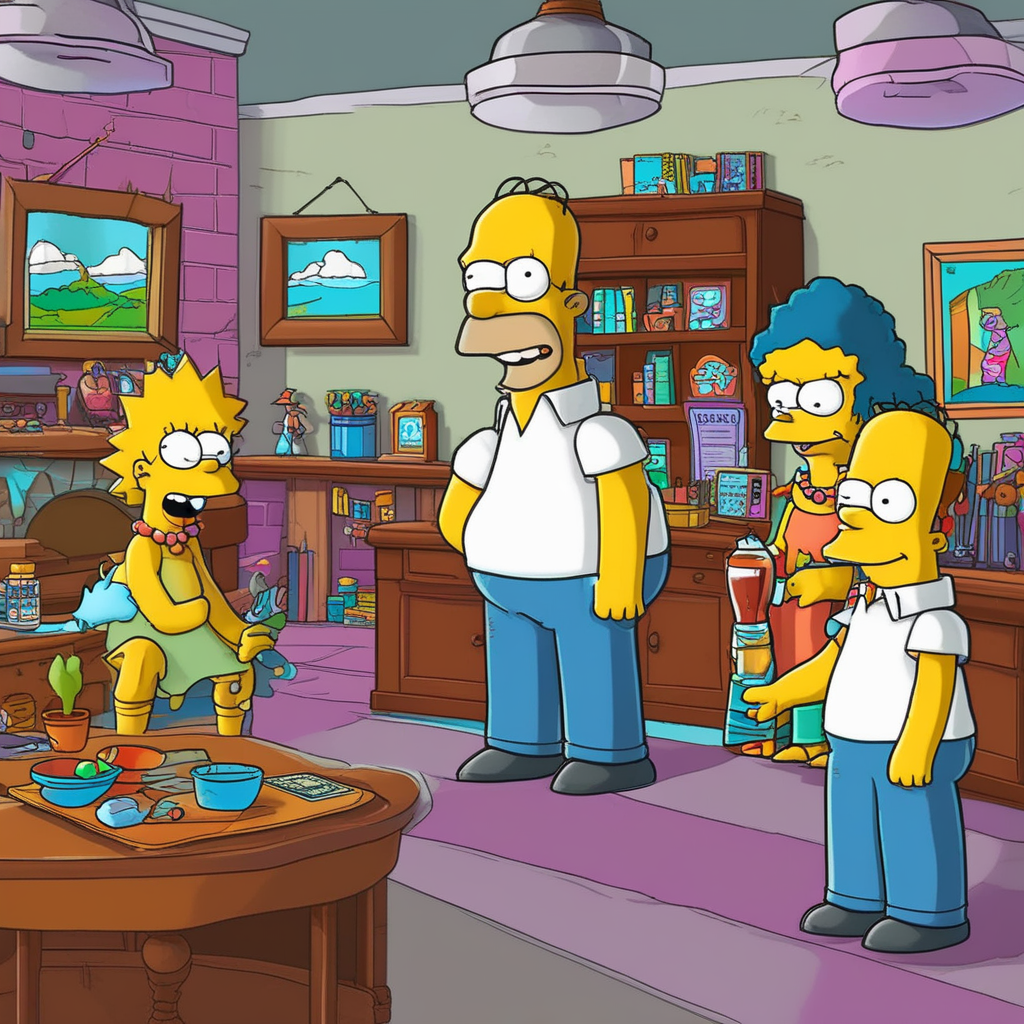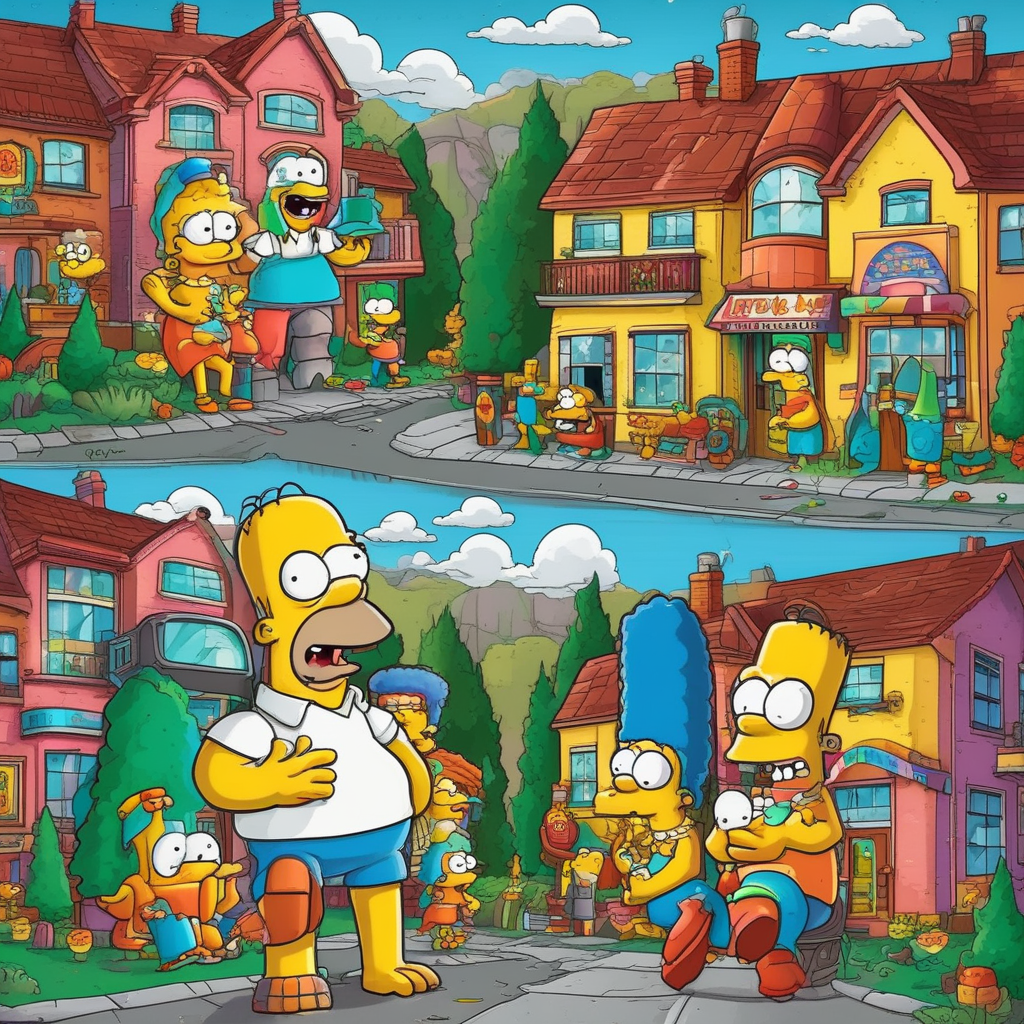The Simpsons, as the most iconic American animated television series, has been running for over three decades now. It was enough time to gain greater visibility not just for its comedy and sociological satire but also for the incredible ability to seem to predict future events. From technological breakthroughs to political situations, The Simpsons has shocked audiences with its predictability. But how did this lovable show predict so many things perfectly? Luck, satire, or something more? This article looks at the intriguing phenomenon.

- Brief History of The Simpsons
Any evaluation of Simpsons prophecies begins with a brief history of the show itself. It was created by Matt Groening, and it first aired in 1989. The Simpsons started off as satirical art about the American family and then gradually became something much bigger than just a sitcom about a family when it commented sharply on everything from politics to pop culture and technology. Being a show that was done by a team of sharp, highly-educated writers, The Simpsons continuously drew from the events happening at that time, historical patterns, and even academic discussions.
Many have, however, noted how eerily accurate The Simpsons is regarding predictions of future events. These predictions have resulted in a surge in discussions on whether the show has prophetic capabilities or not.
- The Role of Satire and Exaggeration
At its core, The Simpsons is a satirical show. Satire works on taking real-life situations and exaggerating them to the point of absurdity in order to poke fun at some societal trend or flaw. However, what often gets overlooked is the fact that, although exaggerated, satire is indeed rooted in reality. Often, writers for The Simpsons took something current and projected it into the future, with sometimes piercing skewers of society’s probable trajectory.
For example, one of the most notable was when Donald Trump would become President of the United States. In a 2000 episode called “Bart to the Future,” The Simpsons envisioned a future where Lisa Simpson grows up to be president and speaks of inheriting a fiscal disaster from “President Trump.” Back then, it was considered some weird gag because Trump was only known as a businessman and TV personality. However, an absurd idea rested on the public image of Trump and his consistent flirting with candidacy throughout his life.
- Long-Running Content
The Simpsons seems to foresee the future simply because of the sheer volume of content it’s produced over its long run. With more than 700 episodes and counting, the series has covered a large variety of topics and scenarios. Statistically speaking, the more guesses you make, the higher your chances of being correct at least some of the time. The Simpsons has covered everything – politics, technology, global crises, and just about everything else that’s going on in the world, so it’s no great shock when something, at least once in a while, seems to actually occur in reality.
Apart from its rich content, many of the show’s writers draw inspiration from a wide range of areas of expertise. Indeed, many writers of The Simpsons are math, science, or philosophy graduates. For instance, show writer David X. Cohen is an alumnus with a major in physics. Such intellectual underpinnings add a more informed perspective to many future projections that the show makes about a particular situation.
- Trend-Based and Logically Proven Predictions
One of the most logical reasons for the truthfulness of The Simpsons would be that many of its prophecies are not coincidental but rather true because they had done very careful observations of the existing trends. For instance, The Simpsons featured a smart watch years before Apple came up with its first wearable device. It was in 1995 when characters in an episode of The Simpsons, Lisa’s Wedding, used a watch as a communication device. It was an utterly fanciful notion at the time, but not completely unthinkable. The idea of wearability was already sprouting in science fiction, and technical progress in miniaturization and communication seemed to make it plausible, sooner or later.
Similarly, The Simpsons had a future prophecy of the booming development of autocorrect technology wherein the school bullies Kearney and Dolph tried to write a memo on a Newton device only to end up with hilariously “corrected” text as being “Eat up Martha” instead of “Beat up Martin.” Now, Apple’s Newton was one of the most primitive attempts at attempting handwriting recognition, and in terms of accuracy it was highly questionable. Years went by, and autocorrect soon became standard on many smartphones, finding the inhabitants in awkward situations due to the bad text messages just as it happened in The Simpsons.
- Coincidence or Something More?
While most of the prophecies through The Simpsons rely on rational projections or satire, some of them couldn’t be attributed as coincidental but involved something deeper. One such case is when the Ebola virus would erupt. In the 1997 episode “Lisa’s Sax,” Marge recommends to an ailing Bart that he should read a book called Curious George and the Ebola Virus. Although the virus actually did exist in 1997, it wasn’t until the massive outbreak in 2014 that the international community woke up and started to know Ebola.
Another incredibly ominous prediction was the finding of the Higgs boson, or as it is sometimes called, the “God particle.” The scientists predicted that they would discover the Higgs boson. In the 1998 episode “The Wizard of Evergreen Terrace,” the writers revealed Homer Simpson once wrote a complicated equation on a blackboard. Years later, they discovered that his equation closely resembled one describing the mass of the Higgs boson, which they found in 2012.
Such predictions have led to speculation among the viewers whether the writers of the show are more aware of the science, mathematics, and trends in the world than they make out to be. However, most likely, these examples are just educated guesses or coincidences.

- Impact of Cultural Influence
The other half of the prophecies of The Simpsons lies in its vast cultural impact. Since this programme has been on air for a few decades, millions of viewers, including those in influential places or among the politics, sciences, and technologies, have been reached by it. Some of these ideas might probably end up inspiring some actual real life events or innovations.
For example, in the 1993 episode “Marge in Chains,” The Simpsons aired a scenario where an outbreak of virus from Asia begins through infected parcels-a not-so-distantly possible scenario from the current COVID-19 pandemic, which started in 2020. Though such a thing would mean that an episode of The Simpsons somehow caused the pandemic, a primary quality of the plot means exactly this-such tapping into real anxieties and possibilities might go on to influence public discourse and even actual decision-making.
- False Prophecies and Misconceptions
Finally, it is important to note that while The Simpsons is credited with predicting many things, some of the claims are simply not true. In recent years, internet users and conspiracy theorists have perpetuated a misconception that the show’s power to predict events is much stronger than it actually is, lending to their creation of false associations between events and episodes that were never real. In fact, one of the best-known myths is that the show predicted the 9/11 attacks. Some point to one scene in which Lisa displays a magazine that is touting a bus trip for $9, the Twin Towers looming in the background forming the numbers “9/11.” That is probably just a coincidence and not a precognition of disaster.
These illustrations show the importance of a clear distinction between good predictions and coincidence or myth.
- Conclusion: A Combination of Satire, Observance, and Serendipity
In other words, the ability of The Simpsons to “predict” the future may be attributed to satire, logical projections, trend analysis, and at times coincidence. A talent for observation within the writers gives them the ability to extend present trends into absurd, futuristic scenarios. With the sheer volume of content produced by the show, statistically speaking, some of their guesses were bound to come true.
While some are uncanny, it probably is more a result of thought-out, educated guesses rather than some sort of supernatural ability. It will be interesting to see what The Simpsons "predicts" next as the world continues on its way.